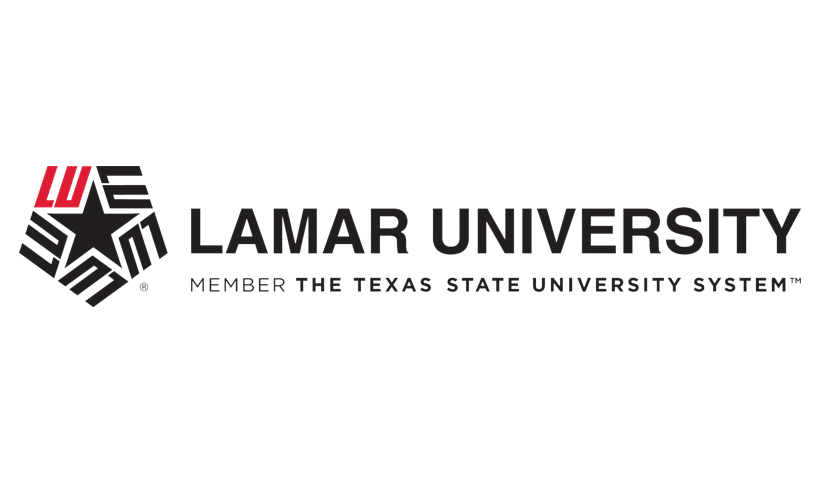In a word, yes. It is possible to enter the counseling field with only a bachelor’s degree, but it’s essential to understand the limitations and opportunities associated with this level of education. While a bachelor’s degree in counseling, psychology, social work, or a related field can qualify you for certain entry-level roles, licensed counseling positions usually require advanced education and additional certifications. If your goal is to work as a licensed counselor providing one-on-one counseling, group therapy, or clinical services, a graduate degree is typically required.
In this article, we’ll explore the educational paths available to prospective counselors, including opportunities for those starting with a bachelor’s degree and the additional benefits of pursuing advanced degrees. We’ll also cover essential topics like program accreditation, job outlook, and salary expectations to help you make an informed decision about your career.
 Walden University : MS in Clinical Mental Health Counseling (CACREP Accredited, six specializations to choose from)
Walden University : MS in Clinical Mental Health Counseling (CACREP Accredited, six specializations to choose from) Walden University : MS in School Counseling (CACREP Accredited)
Walden University : MS in School Counseling (CACREP Accredited) Northwestern University : Online MA in Counseling (CACREP Accredited)
Northwestern University : Online MA in Counseling (CACREP Accredited) Northwestern University : Master of Science in Marriage and Family Therapy (Complete your COAMFTE-accredited MFT online program in as few as 21 months. No GRE required.)
Northwestern University : Master of Science in Marriage and Family Therapy (Complete your COAMFTE-accredited MFT online program in as few as 21 months. No GRE required.) Grand Canyon University : Master's Degree in Counseling (CACREP Accredited)
Grand Canyon University : Master's Degree in Counseling (CACREP Accredited) Liberty University : MA: Clinical Mental Health Counseling (Online with required intensives)
Liberty University : MA: Clinical Mental Health Counseling (Online with required intensives) National University : Master of Science in Clinical Mental Health Counseling (Accredited. No GRE. Scholarships Available)
National University : Master of Science in Clinical Mental Health Counseling (Accredited. No GRE. Scholarships Available) University of Denver : Master of Arts in School Counseling (CACREP Accredited)
University of Denver : Master of Arts in School Counseling (CACREP Accredited) Mid-America Christian University (MACU) : Master of Science (MS) in Counseling (100% Online, No GRE Required)
Mid-America Christian University (MACU) : Master of Science (MS) in Counseling (100% Online, No GRE Required)Counseling with a Bachelor’s Degree
Bachelor’s degree holders can find opportunities as case managers, mental health technicians, behavioral health specialists, and similar roles within support organizations, social service agencies, and other settings where they assist clients and support licensed counselors or therapists. For those considering a more advanced role, a bachelor’s degree provides an essential foundation for further studies and licensure in the counseling profession.
Types of Counselors
The counseling profession encompasses a variety of roles, each with distinct responsibilities, educational requirements, and specialized skill sets. Understanding the types of counselors can help students envision different career paths and determine if a bachelor’s degree will allow them to pursue their desired role. Here are some common types of counselors:
Mental Health Counselors
Mental health counselors work with individuals, families, and groups to address mental health issues like anxiety, depression, and trauma. Although most mental health counselor roles require a master’s degree and licensure, those with a bachelor’s degree may work as mental health technicians or support specialists, providing valuable assistance to licensed counselors.
Substance Abuse Counselors
Substance abuse counselors focus on helping clients recover from addiction to drugs or alcohol. While licensed substance abuse counselors typically need a graduate degree, some states may allow bachelor’s degree holders to work in supervised counseling positions or as case managers within rehabilitation centers and recovery programs.
School Counselors
School counselors assist students with academic planning, social development, and career exploration. Becoming a licensed school counselor generally requires a master’s degree in school counseling or a related field. However, bachelor’s degree holders may still find opportunities as support staff within educational settings, where they can help with student activities, mentoring, and administrative support.
Career Counselors
Career counselors aid individuals in finding suitable career paths, setting professional goals, and developing job search skills. A master’s degree is often needed to work as a licensed career counselor, but bachelor’s degree holders may qualify for roles such as career advisors, especially within workforce development programs or career centers.
Rehabilitation Counselors
Rehabilitation counselors support individuals with disabilities or chronic illnesses in achieving personal and employment goals. Most positions in this field require a master’s degree, but bachelor’s graduates may work in related roles such as vocational rehabilitation support or job coaching under the supervision of licensed professionals.
Marriage and Family Therapists (MFTs)
Marriage and family therapists (MFTs) work with couples and families to address relational and psychological issues. Licensing for MFTs usually requires a master’s degree in marriage and family therapy, but bachelor’s degree holders may provide support services in family-oriented counseling centers, often in roles that assist licensed therapists.
Understanding these roles can help aspiring counselors identify potential paths that align with their educational level and career goals.
Consider a Featured Online Counseling Program
| School and Program Information | Online Program? Entry Requirements | Course Information | |
|---|---|---|---|
|
Walden University
MS in Clinical Mental Health Counseling
 CACREP Accredited CACREP Accredited |
✔ Online
GRE scores not required
|
Walden’s online CACREP-accredited MS in Clinical Mental Health Counseling program can help you become the competent, compassionate counselor you know you can be.
|
Learn More |
|
Walden University
MS in School Counseling
 CACREP Accredited CACREP Accredited |
✔ Online
GRE scores not required
|
CACREP-accredited program provides a solid foundation in school counseling theories, approaches, and best practices while enabling you to gain hands-on experience.
|
Learn More |
|
Northwestern University
Online MA in Counseling
 CACREP Accredited CACREP Accredited |
✔ Online
GRE Not Required
Bachelor's Required |
CACREP-accredited online Master of Arts in Counseling from The Family Institute at Northwestern University. Prepare to pursue licensure in as few as 18 months.
|
Learn More |
|
Northwestern University
Master of Science in Marriage and Family Therapy
COAMFTE Accredited
|
✔ Online
GRE Not Required
Bachelor's Required |
Complete your COAMFTE-accredited MFT online program in as few as 21 months. No GRE required.
|
Learn More |
|
Grand Canyon University
Master's Degree in Counseling
 CACREP Accredited CACREP Accredited |
✔ Online
|
CACREP-accredited MS in Clinical Mental Health Counseling. Emphases: Marriage & Family Therapy, Christian Counseling, Childhood & Adolescence Disorders, & Trauma.
|
Learn More |
|
Liberty University
MA: Clinical Mental Health Counseling
 CACREP Accredited CACREP Accredited |
✔ Online
Online with required intensives
|
Our CACREP-accredited online master’s in counseling helps you become a skilled mental health counselor ready to empower others for positive change.
|
Learn More |
|
National University
Master of Science in Clinical Mental Health Counseling
WSCUC Accredited
|
✔ Online
GRE Scores Not Required
|
Focused on training highly skilled counselors to provide impactful and culturally sensitive mental health services in their communities.
|
Learn More |
|
University of Denver
Master of Arts in School Counseling
 CACREP Accredited CACREP Accredited |
✔ Online
No GRE Required; Minimum GPA 2.5 Required
|
With no GRE required, earn your CACREP-accredited Master's in School Counseling online in as few as 24 months from the University of Denver.
|
Learn More |
|
Mid-America Christian University (MACU)
Master of Science (MS) in Counseling
Higher Learning Commission (HLC)
|
✔ Online
100% Online
|
The largest MS in Counseling program in OK. Emphasis in addiction & substance abuse, applied behavioral science, clinical mental health counseling, and more!
|
Learn More |
*Sponsored Counseling Programs
For detailed degree information, view the guides to:
Online CACREP Accredited programs | Online MPCAC Accredited programs
Counselor Education Path
The path to becoming a counselor varies based on the type of counseling role one aims to pursue. While some positions may be available to those with a bachelor’s degree, many require graduate-level education to attain licensure and practice independently. Below is an overview of the typical educational journey for prospective counselors, including relevant degree options and why each may be necessary or beneficial.
Bachelor’s Degree in Counseling: Building the Foundation
What can you do with a bachelor’s degree in counseling? Common roles for students with a bachelor’s degree include case manager, mental health technician, or behavioral health assistant.
Additionally, a bachelor’s degree in counseling or a related field, such as psychology or social work, is often the first step for those interested in counseling careers. Undergraduate programs provide foundational knowledge in topics such as human behavior, developmental psychology, and introductory counseling techniques. Although bachelor’s degree holders cannot become licensed counselors in most states, this level of education opens the door to supportive counseling roles.
Master’s Degree in Counseling: Meeting Licensure Requirements
For those who want to become licensed counselors, earning a master’s degree is typically essential. Master’s programs, such as those in mental health counseling, marriage and family therapy, or school counseling, prepare students for the specialized knowledge and supervised clinical experience required for licensure. Coursework at the graduate level includes counseling techniques, ethics, psychological assessment, and advanced counseling theory, with most programs also requiring extensive supervised fieldwork.
Doctorate in Counseling: Advancing Expertise and Career Options
Some counselors pursue a doctorate in counseling psychology or related areas to expand their expertise or pursue roles in research, academia, or advanced clinical practice. Doctoral programs offer in-depth studies of psychological theory, advanced counseling techniques, and research methods. While a doctorate is not required to practice as a licensed counselor, it can open doors to leadership, supervisory, or specialized clinical roles.
 Walden University - MS in Clinical Mental Health Counseling (CACREP Accredited)
Walden University - MS in Clinical Mental Health Counseling (CACREP Accredited)
 Walden University - MS in School Counseling (CACREP Accredited)
Walden University - MS in School Counseling (CACREP Accredited)
 Northwestern University - Online MA in Counseling (CACREP Accredited)
Northwestern University - Online MA in Counseling (CACREP Accredited)
 Northwestern University - Master of Science in Marriage and Family Therapy (COAMFTE Accredited)
Northwestern University - Master of Science in Marriage and Family Therapy (COAMFTE Accredited)
 Grand Canyon University - Master's Degree in Counseling (CACREP Accredited)
Grand Canyon University - Master's Degree in Counseling (CACREP Accredited)
 Liberty University - MA: Clinical Mental Health Counseling (CACREP Accredited)
Liberty University - MA: Clinical Mental Health Counseling (CACREP Accredited)
 National University - Master of Science in Clinical Mental Health Counseling (WSCUC Accredited)
National University - Master of Science in Clinical Mental Health Counseling (WSCUC Accredited)
 University of Denver - Master of Arts in School Counseling (CACREP Accredited)
University of Denver - Master of Arts in School Counseling (CACREP Accredited)
 Mid-America Christian University (MACU) - Master of Science (MS) in Counseling (Higher Learning Commission (HLC) Accredited)
Mid-America Christian University (MACU) - Master of Science (MS) in Counseling (Higher Learning Commission (HLC) Accredited)
Counseling Program Basics
For those interested in pursuing counseling, understanding the structure and essentials of counseling programs can be beneficial. Here, we’ll break down key elements such as accreditation, program formats, and the curriculum typically found in counseling degree programs. These aspects are vital for ensuring both quality education and alignment with licensure requirements.
Accreditation: Ensuring Quality and Licensure Eligibility
When selecting a counseling program, accreditation is one of the most important factors to consider. Accredited programs meet rigorous academic and professional standards, ensuring the education provided is relevant and comprehensive. Programs accredited by the Council for Accreditation of Counseling and Related Educational Programs (CACREP) or equivalent organizations are typically recognized by licensing boards. Choosing an accredited program can simplify the licensure process and enhance career prospects by meeting established educational benchmarks in the counseling field.
Program Formats: Flexibility and Accessibility
Counseling programs are available in several formats, offering flexibility to accommodate various lifestyles and schedules. Traditional, on-campus programs provide face-to-face learning environments that some students prefer. For those balancing work, family, or other obligations, online counseling degrees offer flexibility while delivering the same rigorous coursework as in-person options. Additionally, hybrid formats combine online and in-person elements, allowing students to benefit from both styles. These various formats enable students to choose the best fit for their learning needs and personal responsibilities.
Overview of Typical Curriculum
While counseling curricula may vary based on specialization and degree level, most programs include core courses essential to developing counseling skills and ethical practices. Typical subjects in counseling programs cover:
- Counseling Theories and Techniques: Study of foundational theories, approaches, and methods applied in clinical practice.
- Assessment and Diagnosis: Training in evaluating clients’ mental health status and diagnosing psychological disorders.
- Ethics and Legal Standards: Instruction on the ethical codes and legal regulations governing counseling practices.
- Cultural Competence and Diversity: Courses focused on understanding and respecting diverse backgrounds and providing inclusive care.
Programs offering specializations, such as addiction counseling or marriage and family therapy, may also include additional courses tailored to those fields. Understanding the structure and content of these programs can help students prepare for a career that aligns with their interests and goals in counseling.
Job Outlook and Salary for Counselors
The counseling field offers promising career prospects, with several roles projected to grow faster than the average for all occupations. Salaries and job outlook can vary significantly depending on factors like specialization, education level, and geographic location.
Demand for Counseling Professionals
According to the U.S. Bureau of Labor Statistics (BLS), employment of substance abuse, behavioral disorder, and mental health counselors is expected to grow 19 percent from 2023 to 2033. This rapid growth is driven by an increasing focus on mental health and addiction services, as well as broader access to these services through changes in healthcare policy. School and career counselors are also in demand, with a projected growth rate of 4 percent over the same period, reflecting the ongoing need for academic guidance and career counseling.
Salary Expectations in Counseling
The median annual wage for substance abuse, behavioral disorder, and mental health counselors was $53,710 in May 2023, with variations based on industry and job location. Below is a breakdown of median salaries for counselors across key settings:
- Substance Abuse, Behavioral Disorder, and Mental Health Counselors
- Hospitals (state, local, and private): $59,090
- Offices of other health practitioners: $55,410
- Outpatient mental health and substance abuse centers: $51,130
- Individual and family services: $51,010
For those with a master’s degree, salary potential often increases, especially in licensed roles such as Licensed Professional Counselor (LPC) or Licensed Clinical Social Worker (LCSW), which tend to command higher earnings. In addition, school and career counselors, who typically work within educational settings, had a median annual wage of $61,710 in 2023.
FAQ on Becoming a Counselor With a Bachelor’s Degree
Can I become a licensed counselor with just a bachelor’s degree?
In most cases, a bachelor’s degree alone does not meet the educational requirements for counseling licensure, especially for roles like Licensed Professional Counselor (LPC) or Licensed Clinical Social Worker (LCSW). However, certain entry-level positions, such as behavioral health technician or case manager, may be accessible with a bachelor’s in counseling or a related field.
What can you do with a bachelor’s degree in counseling?
A bachelor’s degree in counseling can prepare graduates for roles that provide foundational experience in mental health, addiction services, or social services. Positions may include case manager, substance abuse counselor assistant, or psychiatric technician. Many use these roles as stepping stones while working toward a master’s degree and eventual licensure.
How long does it take to get a counseling degree?
A bachelor’s degree in counseling typically takes four years to complete. However, to pursue licensed counseling roles, you’ll generally need an additional two to three years for a master’s degree. Some students also choose to earn doctoral degrees, which can require an additional four to six years, depending on the program and research focus.
Do all counseling positions require a graduate degree?
No, not all counseling positions require a graduate degree. Entry-level roles may be available to those with a bachelor’s degree, especially in settings like residential facilities or community mental health agencies. However, a master’s degree is usually required for positions that involve one-on-one counseling or therapeutic work.
Are online counseling degrees respected?
Yes, online counseling degrees from accredited institutions are respected by employers, provided they meet industry accreditation standards, such as CACREP for counseling programs. Online programs are often structured to provide the same coursework and field training as on-campus degrees, allowing for flexibility without compromising quality.
Making the Most of a Bachelor’s Degree in Counseling
While a bachelor’s degree may not always meet the requirements for licensure, it’s a critical first step for students pursuing a career in counseling. With roles available for bachelor’s graduates in support positions, this degree also lays the groundwork for advanced studies, enabling students to build experience as they consider graduate pathways. By gaining early exposure to the field, prospective counselors can clarify their career goals and take informed steps toward their future.







